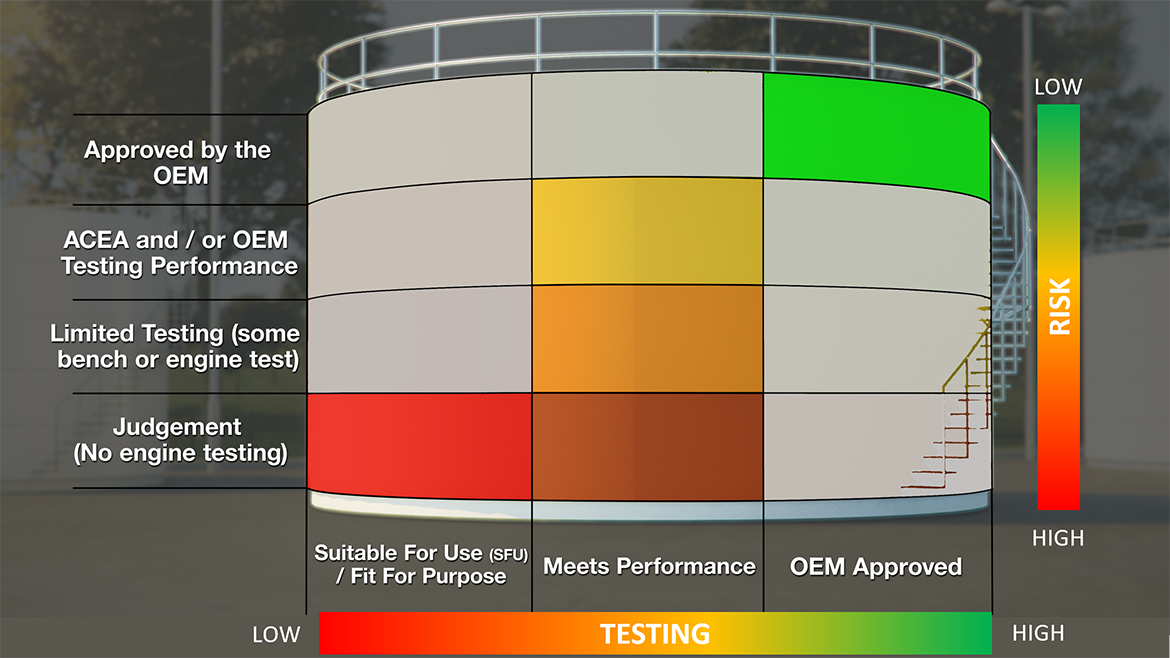The global passenger car engine oil market is increasingly complicated. Oil marketers are required to maintain portfolios which protect an ever-expanding array of vehicle needs; shifting vehicle parc ages, hardware evolutions, maintain performance requirements against Original Equipment Manufacturer (OEM) and industry specification whilst also aligning to government and environmental legislation such as emissions reductions.
Given the demands placed on this market, lubricants being created typically fall into one of three main tiers in performance and testing:
- OEM Approved
These passenger car engine oils will have undergone full OEM testing and approval meaning they have the highest level of testing and lowest levels of risk in the market space. It is possible for these oils to be sold under any brand and they are not limited to being OEM branded products. - Meets Performance
These passenger car engine oils are supported by some testing but are not formally approved by the OEM. This could mean they have been through the equivalent testing as OEM approved, but there could also be some areas of testing which have not been completed. As such, these engine oils can be thought of as having mid-to-high levels of testing and a medium risk level. - Suitable For Use (SFU) / Fit For Purpose
These passenger car engine oils represent the highest risk for oil marketers and retailers. They typically have minimal or insufficient testing meaning limited or no proof of OEM performance can be given. Formulations will often have been made using significant judgement meaning they have potentially never been through engine testing.

Test Requirements and Risk Levels Associated with Each Lubricant Tier
Understanding these categories, the risks and the rewards of each and their potential impact on brand reputation is key to the success and longevity of product portfolios. Choosing the wrong product, or not performing the right due diligence up-front, opens oil marketers up to potential for negative impacts throughout the value chain. A lubricant which does not perform as required in real world situations could lead to hardware failure, damage to oil marketer and workshop reputation, reduced market and consumer trust, plus legal and monetary impacts for the oil marketer. It is important for oil marketers to understand that ownership of all aspects of legal liability remains with them for all fluids supplied into the market space.
To learn more about the risks associated with Suitable For Use passenger car engine oils, you can watch a replay of our webinar in which we discuss the three tiers of product performance and testing, the potential risks of choosing the wrong solution, identifying which category an engine oils falls into and the results of testing carried out on off the shelf lubricants.
Since engine oils are hidden away in a vehicle, visualizing the issues caused by inadequate performance is not always easy. Click here to view our animation which brings to life some of the failings found in off the shelf Suitable For Use lubricants.
For more information about passenger car engine oils, contact your Lubrizol representative.










